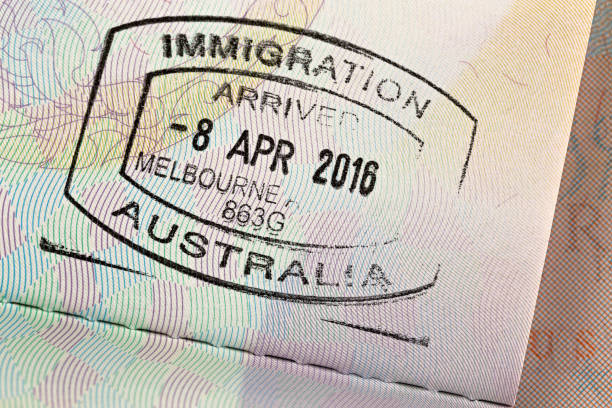What are the grounds for visa cancellation procedure under Section 116 of the Migration Act 1958 (the Act)?
Cancellation under Section 116 of the Act includes providing incorrect information, a change in circumstances, or posing a risk to the health, safety, or good order to the Australian community. The Minister follows certain procedures before deciding to cancel a visa under Section 116.
Part 2, Division 3, Subdivision E (Subdivision), Sections 118A to 127 of the Act provide the visa cancellation procedure for grounds under Section 116.
These provisions include notification requirements, prescribed periods, among others. It is crucial to note that the provisions of this Subdivision do not apply to a cancellation under a provision other than Section 116.
This article discusses matters pertaining to the visa cancellation procedure under Section 116 of the Act.
Section 119: Notice of Proposed Cancellation
If the Minister considers cancelling a visa under Section 116, the Act mandates the Minister to notify the holder (whether they are in or outside Australia) that there appear to be grounds for cancelling the visa.
Under Section 119, the Minister must give particulars of those grounds and of the information because of which the grounds appear to exist.
In addition, the visa holder must be able to show, within a specified time, that:
- those grounds do not exist, or
- There is a reason why the Minister should not cancel the visa.
The Act provides that the holder must be notified in a prescribed way, or in a way that the Minister considers to be appropriate. However, Regulations for this Subdivision does not prescribe specific methods of notification yet. But the Act does specify that the Minister may notify the visa holder orally. And if a notice is in writing, the Regulations prescribe the ways in which applicants can give documents.
Section 120: Information That a Visa Holder Should Have
Under Section 120 of the Act, the Minister must:
- give particulars of the relevant information to the holder,
- ensure, as far as reasonably practicable, that the holder understands why it is relevant to the cancellation, and
- invite the holder to comment on it.
“Relevant information” means information (other than non-disclosable information) that the Minister considers:
- would be the reason, or a part of the reason, for cancelling a visa,
- is specifically about the holder or another person and is not just about a class of persons of which the holder or other person is a member of,
- was not given by the holder, and
- was not disclosed to the holder in the notification requirement under Section 119.
The particulars and invitation must be given in the way that the Minister considers appropriate in the circumstances.
Section 121: Invitation to Give Comments
Under Section 121, an invitation to give comments must specify how the response may be given, which may be:
- in writing,
- at an interview between the holder and an officer, or
- by telephone.
The invitation must specify prescribed periods, specific times, and places. The period to respond or the time of the interview may be changed or extended by the Minister. This Section is subject to Sections 125 and 126 (discussed below).

Mandatory Procedures of Sections 119-121
Case law provides that there must be sufficient compliance with the statutory requirements to ensure that the visa holder is informed of the substance of the matters and to provide an opportunity for the visa holder to give a meaningful response. The guiding principle is whether the overall purpose of procedural fairness in the visa cancellation procedure is served.
The Court also ruled that the requirement to give particulars of the grounds requires more than simply stating the ground of cancellation. For instance, where cancellation is considered under Section 116(1)(a) – circumstances which permitted the grant of the visa no longer exist, the identification of the circumstance is a minimum requirement of particularisation of that ground.
It does not suffice to advise a visa holder that the visa will be cancelled because “the circumstances which permitted the grant of the visa no longer exist”. It is also not enough to simply refer to the information giving rise to the ground of cancellation. The connection between the information and the ground must be established.
Section 122: Prescribed Periods on the Visa Cancellation Procedure
This Section provides that prescribed periods or time limits relating to a step of the visa cancellation procedure may vary.
Section 123: Failure to Accept Invitation
Under Section 123, if a visa holder does not respond to an invitation before the time for giving it has passed or tells the Minister that they do not wish to respond, the Minister may make the decision about cancellation without taking any further action about the information.
Section 124: Decision on Visa Cancellation
Under Section 124, the Minister may cancel a visa at any time after notice about the cancellation has been given and after whichever one of the following happens first:
- the holder responds to the notice,
- the holder tells the Minister that they do not wish to respond, or
- the time for responding to the notice passes.
The Minister cannot cancel a visa before either of the circumstances above happen.
Section 127: Notification of Decision
Under Section 127, notification of a decision to cancel a visa must:
- specify the ground for the cancellation,
- state whether the decision is reviewable under Part 5 or 7 of the Act with the Administrative Appeals Tribunal, and
- if the former visa holder has a right to have the decision reviewed, state details of review rights such as:
- the time in which the application for review may be made,
- who can apply for the review, and
- where the application for review can be made.
It is crucial to note that the Act provides that failure to give notification of a decision does not affect the validity of the decision. However, it may affect the time limit for lodging a review application.

Other relevant provisions in relation to visa cancellation procedure:
Section 118A: Exhaustive Statement of Natural Justice Hearing Rule
Under Section 118A, Subdivision E is taken to be an exhaustive statement of the requirements of the natural justice hearing rule in relation to the matters it deals with.
The hearing rule of natural justice requires that a person must be informed about the case and have an opportunity to comment in reply. Hence, the provisions under this Subdivision are in compliance with such rule.
Sections 125 & 126: Application of Subdivision to Non-citizen in Immigration Clearance and in Questioning Detention
Under Section 125, if a non-citizen in immigration clearance who is in questioning detention has an invitation to comment, the period within which he or she may respond to the invitation is to end when, or before, he or she ceases to be in immigration clearance.
Under Section 126, if a non-citizen in questioning detention who is not released before the end of the 4 hours for which he or she may be detained is given an invitation to comment, the period within which he or she may respond to the invitation is to end when, or before, those 4 hours end.
Seeking Legal Advice from Expert Immigration Lawyers
You may be facing a case of visa cancellation and are in need of legal assistance on the visa cancellation procedure.
JB Solicitors has a leading team of experienced immigration lawyers that can help with your situation. We offer legal representation and legal advice tailored to your needs. We ensure that we resolve our clients’ legal matters. Do you have any more queries on the visa cancellation procedure?
Contact us today.
